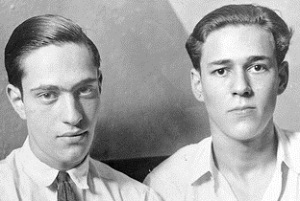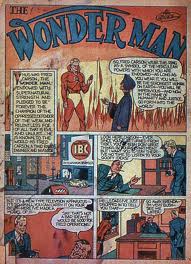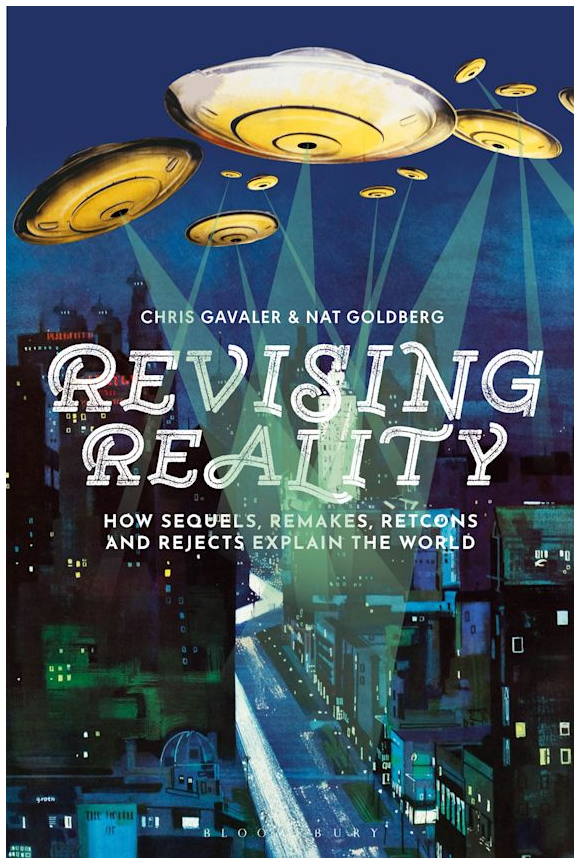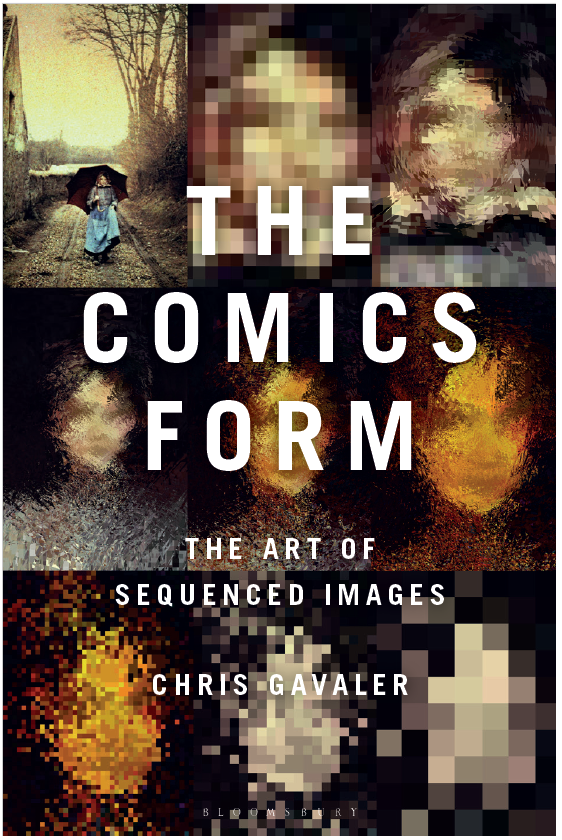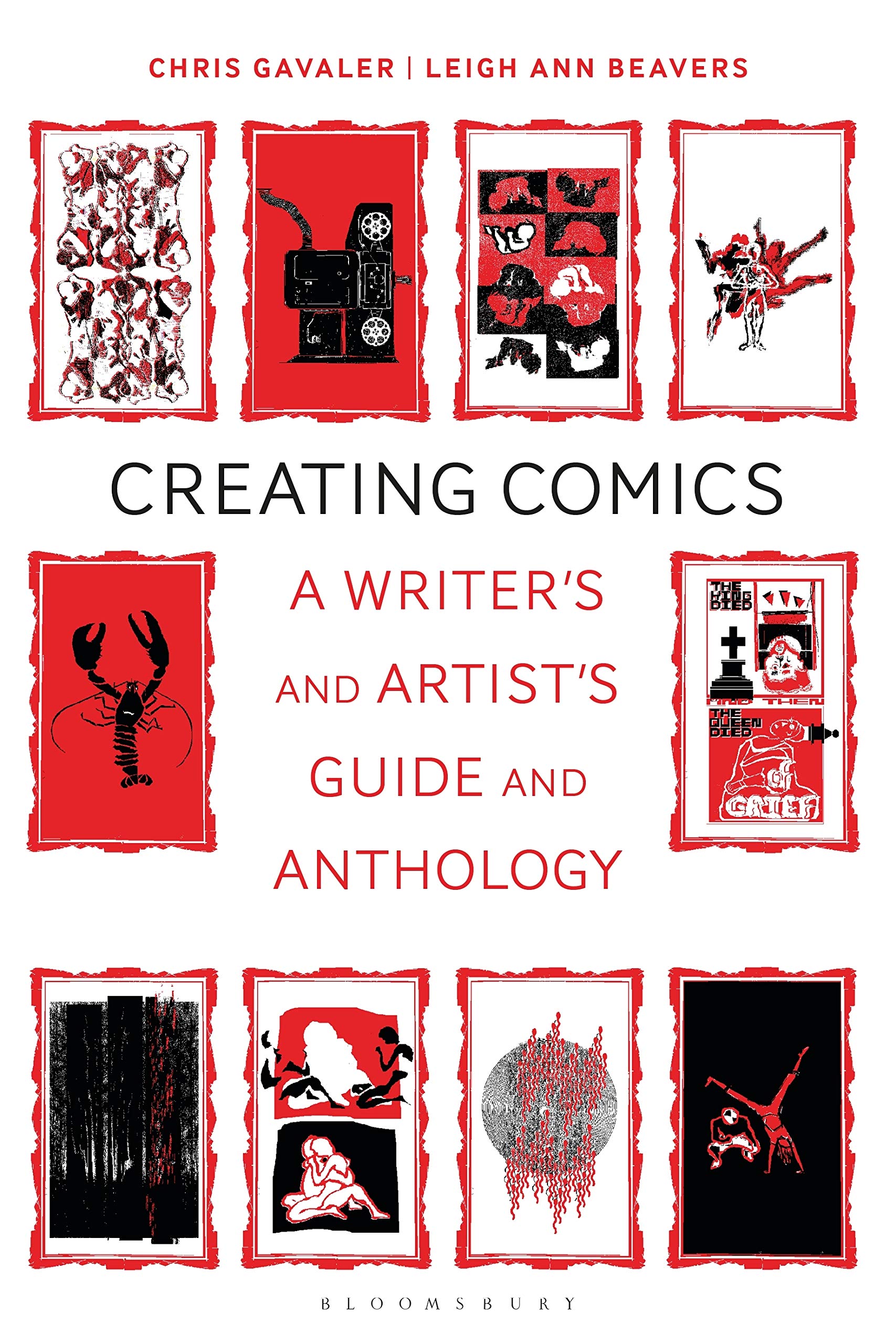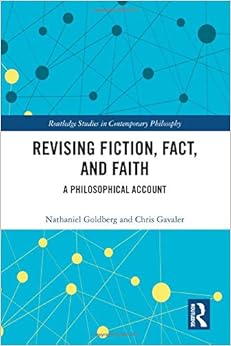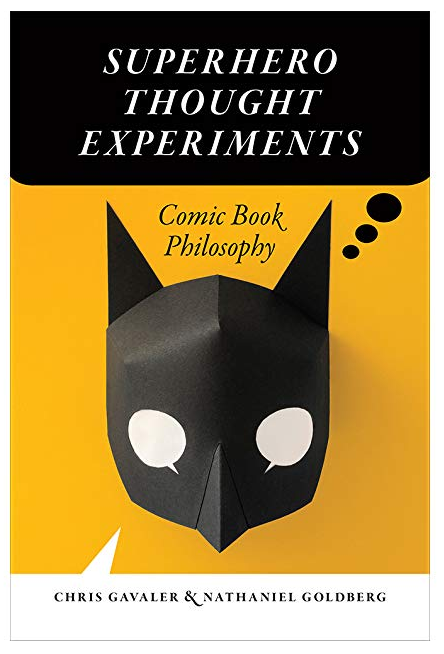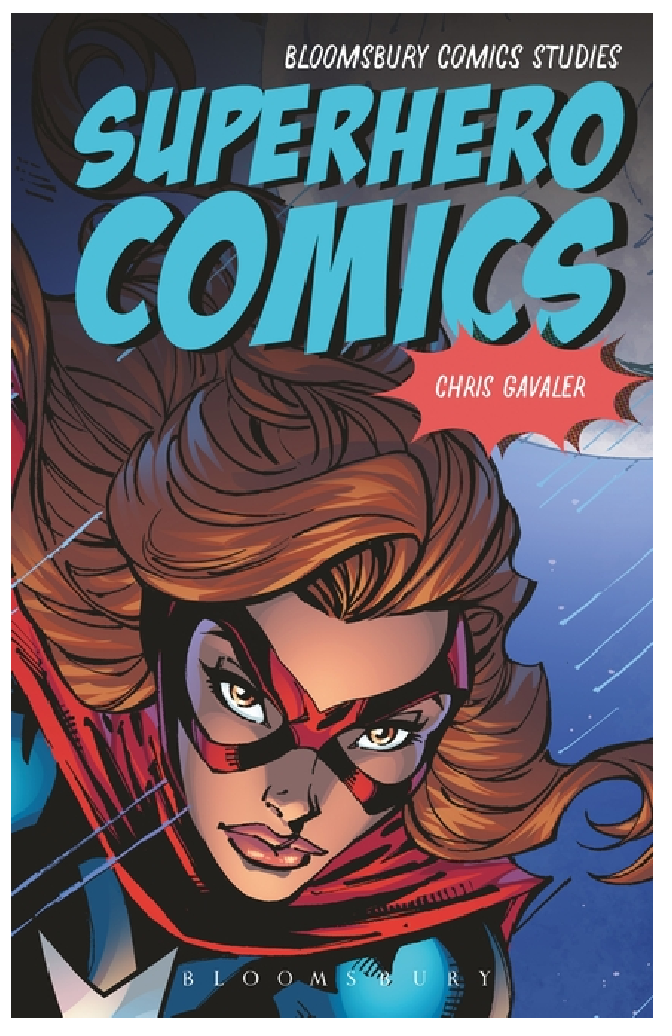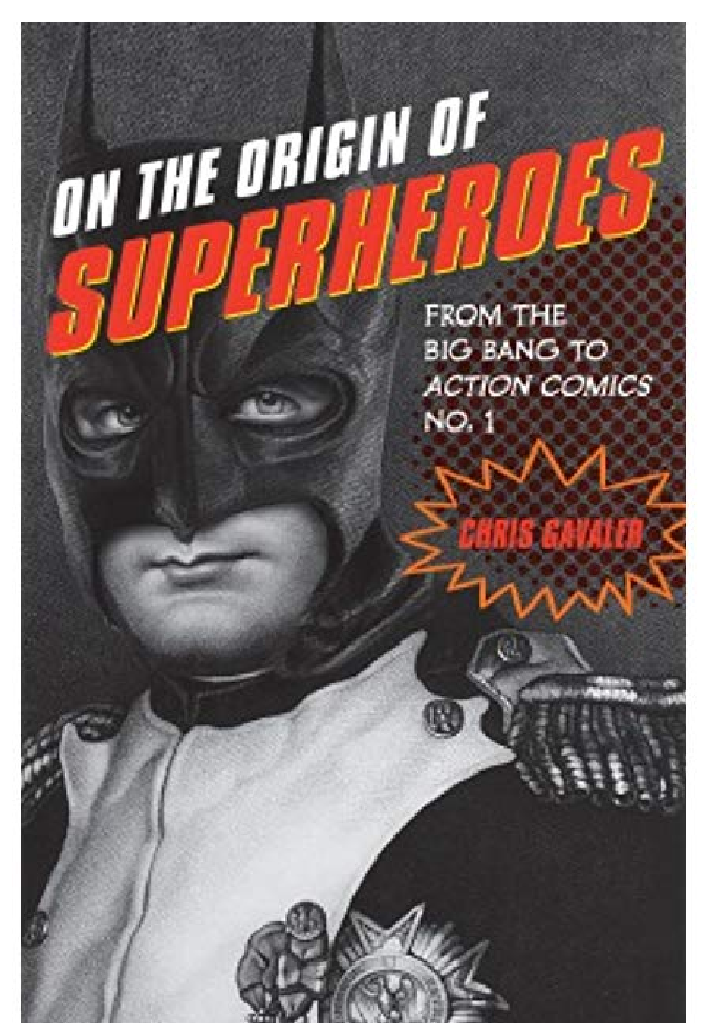Tag Archives: Nietzsche
September 7, 2015 Superman on Trial
Can reading detective fiction and Superman literature turn you into a supervillain? Super-lawyer Clarence Darrow says yes. He argued his case this week in 1924.
The facts were indisputable. His clients, Dickie Loeb and Babe Leopold rented a car, picked up Dickie’s fourteen-year-old cousin Bobby from school, and bludgeoned him with a chisel in the front seat. After stopping for sandwiches, they stripped the body, disfigured it with acid, and hid it below a railroad track. When they got home, they burnt their blood-spotted clothes and mailed the parents a ransom note. It was the perfect crime.
Dickie was nineteen, Babe twenty, but both had already completed undergraduate degrees and were enrolled in law schools. They were also both voracious readers. Darrow, their defense attorney, detailed Dickie’s literary tastes: “detective stories,” each one “a story of crime,” ones, he said, the state legislature had wisely “forbidden boys to read” for fear they would “produce criminal tendencies.” Dickie “devoured” them. “He read them day after day . . . and almost nothing else.”
Darrow didn’t mention any titles, but Dickie must have snuck stacks of Detective Story Magazine past his governess. The Street and Smith pulp doubled from a bi-monthly to a weekly the year he turned twelve. Johnston McCulley was a favorite with fans. His gentleman criminal the Black Star wears a cape and hood with an emblem on the forehead. So does his Thunderbolt. Darrow said Dickie’s pulps “all show how smart the detective is, and where the criminal himself falls down.” But the detectives chasing the Man in Purple, the Picaroon, the Gray Ghost, the Joker, the Scarlet Fox—they never catch their man. Those noble vigilantes remain safely outside the law. They are also all young men born into wealth who disguise their secret lives. So Dickie, the son of a corporate vice-president, learned to play detective, “shadowing people on the street,” as he fantasized “being the head of a band of criminals.” “Early in his life,” said Darrow, Dickie “conceived the idea of that there could be a perfect crime,” one he could himself “plan and accomplish.”
Babe was an impressionable reader too. He’d started speaking at four months and earned genius level IQ scores. Darrow called him “a boy obsessed of learning,” but one without an “emotional life.” He makes him sound like a renegade android, “an intellectual machine going without balance and without a governor.” Where Dickie transgressed through pulp fiction, “Babe took to philosophy.” Instead of McCulley, Nietzsche started “obsessing” Babe at sixteen. Darrow called Nietzsche’s doctrine “a species of insanity,” one “holding that the intelligent man is beyond good and evil, that the laws for good and the laws for evil do not apply to those who approach the superman.” Babe summed up Nietzsche the same way in a letter to Dickie: “In formulating a superman he is, on account of certain superior qualities inherent in him, exempted from the ordinary laws which govern ordinary men.” A member of “the master class,” says Nietzsche himself, “may act to all of lower rank . . . as he pleases.” That includes murdering a fourteen-year-old neighbor as one “might kill a spider or a fly.”
So Babe considered Dickie a fellow superman. And Dickie considered Babe a perfect partner in crime. The two genres have one formula point in common: heroes are “above the law.” When Siegel and Shuster merged Beyond Good and Evil with Detective Story Magazine in 1938, they came up with Action Comics No. 1. Loeb and Leopold only got Life Plus 99 Years, the title of Babe’s autobiography. Prosecutors wanted to hear a death sentence, but Darrow wrote a modern law classic for his closing argument. It brought the judge to tears.
William Jennings Bryan liked it too. He quoted excerpts during the Scopes “Monkey” trial the following year. Bryan was prosecuting John Scopes for teaching the theory of evolution in a Tennessee high school, and Darrow was defending him. Scopes, a gym teacher subbing in science, used George William Hunter’s school board-approved Civil Biology, a standard textbook since 1914, and one that shocks my students when I assign it in my “Superheroes” course.
“If the stock of domesticated animals can be improved,” writes Hunter, “it is not unfair to ask if the health and vigor of the future generations of men and women on the earth might not be improved by applying to them the laws of selection.” After describing families of “parasites” who spread “disease, immorality, and crime,” he argues: “If such people were lower animals, we would probably kill them off to prevent them from spreading. Humanity will not allow this, but we do have the remedy of separating the sexes in asylums or other places and in various ways preventing intermarriage and the possibilities of perpetuating such a low and degenerate race.”
This was one of Bryan’s main objections to evolution, a term he used interchangeably with eugenics: “Its only program for man is scientific breeding, a system under which a few supposedly superior intellects, self-appointed, would direct the mating and the movements of the mass of mankind—an impossible system!”Bryan links eugenics to Nietzsche, as Darrow had the year before, saying Nietzsche believed “evolution was working toward the superman.” The claim is arguable, but the superman was “a damnable philosophy” to Bryan, a “flower that blooms on the stalk of evolution.”
“Would the State be blameless,” he asked, “if it permitted the universities under its control to be turned into training schools for murderers? When you get back to the root of this question, you will find that the Legislature not only had a right to protect the students from the evolutionary hypothesis, but was in duty bound to do so.”
Darrow declined to make a closing argument, preventing Bryan from making his before the judge too, so their final debate played out in newspapers. Either way, Darrow was talking from both ends of his ubermensch. “Loeb knew nothing of evolution or Nietzsche,” he told the Associated Press. “It is probable he never heard of either. But because Leopold had read Nietzsche, does that prove that this philosophy or education was responsible for the act of two crazy boys?”
Perhaps Darrow’s hypocrisy is an illustration of a superman only obeying his own laws. It didn’t matter though. Like Loeb and Leopold’s, Scopes’ guilt was never contested, and the court fined him $100 (later overturned on a technicality). That was 1925, the year the Fascist-inspired “super-criminal” Blackshirt joined Zorro and his merry band of pulp vigilantes, while Adolf Hitler’s Mein Kampf climbed the German best-seller list.
Superman was ascending.
Tags: Clarence Darrow, Detective Story Magazine, Leopold and Loeb, Nietzsche, Scopes monkey trial, William Jennings Bryan
- Leave a comment
- Posted under Uncategorized
January 27, 2014 Tibet, Superhero Tourist Destination of the World
Zarathustra came down from the mountain in 1883. He’s Nietzsche’s reboot of the ancient Iranian prophet Zoroaster—which means the first Superman came down from a mountain in Asia. It’s been a popular continent for superheroes since. When DC rival Fox Publishing needed a Superman knock-off, artist Will Eisener sent Wonderman to Tibet where a turbanded Tibetan was handing out magic rings.
Wonderman couldn’t survive the kryptonite of DC’s court injunction, so for Wonder Comics No. 2 Eisner swapped the colored tights and briefs for a tuxedo and amulet-crested turban. Yarko the Great was one of a dozen superhero magicians to materialize in comic books over the next three years. Nine of them shopped at the same turban store—though Zanzibar the Magician got confused and grabbed a Turkish fez instead. Three of them imported Asian servants too.
The tights-and-brief crowd rallied and sent a half dozen new supermen East, three specifically to Tibet, with Egypt as a solid runner-up. My favorite, Bill Everett’s Amazing Man, is almost as naked as his earlier Speedo-sporting Sub-Mariner, but Amazing Man has the power of the Tibetan Council of Seven on his side. He could also turn into “green mist,” which must have annoyed the hell out of the Green Lama. Jack Cole threw in a Fu-Manchu supervillain too: the Claw attacks America from “Tibet, land of strange religions and mysterious customs.”
When Stan Lee’s boss gave him the same assignment (do what DC is doing), he bee-lined back to Tibet for his and Jack Kirby’s first (and mostly forgotten) attempt at a superhero, the 1961 Doctor Droom. Kirby even gives the formerly Caucasian physician slanted eyes and a Fu Manchu moustache as his lama explains: “I have transformed you! I have given you an appearance suitable to your new role!”
Droom flopped, so Kirby sketched an iron mask and Lee dropped the “r” and, voila!, the supervillainous Doctor Doom was born. The following year Doom was “prowling the wastelands of Tibet, still seeking forbidden secrets of black magic and sorcery!”Another year and Doctor Strange returns from Tibet as “Master of Black Magic!” Strange also picked up Wong, one of those handy manservants Tibetans hand out with their superpowers. The third Doctor emptied Lee’s Tibetan well, but Roy Thomas and Gil Kane’s Iron Fist kept Orientalism thriving at Marvel into the 70s.
Over at Charlton Comics, Peter Morisi’s Thunderbolt returned from his Tibetan adventures with the standard superhero package. Since Alan Moore’s Watchmen were borrowed from Charlton characters, twenty years later his Ozymandias not only “traveled on, through China and Tibet, gathering martial wisdom” but was “transformed” by “a ball of hashish I was given in Tibet” and next things he’s “Adopting Ramses the Second’s Greek name.” Even the 21st century Batman, as retooled in Christopher Nolan’s Batman Begins, hops over to the Himalayas to learn his chops from yet another monkish mentor. And you’ll never guess where director Josh Trank sends his teen superhuman for the closing shot of the 2012 Chronicle.
The 1930s mystery men loved the Orient too. Before Walter Gibson’s Shadow emigrated from pulp pages to radio waves, he first “went to India, to Egypt, to China . . . to learn the old mysteries that modern science has not yet rediscovered, the natural magic.” When Harry Earnshaw and Raymond Morgan conjured Chandu the Magician for film serials, they sent their secret agent to India to study from another batch of compliant yogis. And not only did Lee Falk’s comic strip do-gooder Mandrake the Magician pick up his powers in Tibet, his Phantom found his dual identity in the India knock-off nation of “Bengalla” (which magically wanders to Africa in later stories).
Before Doctors Strange, Doom and Droom (not a practice included in Obamacare) earned their degrees in Tibet, Doctors Silence, Van Helsing and Hesselius interned their first. You can add Siegel and Shuster’s pre-Superman vampire-hunting Doctor Occult to the list of eligible providers too. Like those turban-obsessed magicians, these world-touring physicians are armed with Oriental knowhow. Algernon Blackwood’s Silence was a 1908 mummy-battling best-seller, cribbed from Bram Stoker’s 1897 Dracula. Stoker’s Van Helsing is an expert on “Eastern Europe” and labels his vampire nemesis “a man-eater, as they of India call the tiger who has once tasted blood of the human.” Joseph Sheridan LeFanu’s 1872 Dr. Hesselius hunts vamps too, but his first patient is an English reverend driven to suicide by visions of “a small black monkey” caused by his addiction to the “poison” green tea imported from China, ever the land of strange religions and mysterious customs.
Since none of the doctors bother to mention their mentors, the ur-guru award goes to Rudyard Kipling’s 1901 Kim. While no superhero, Kim is the prototypical colonial adventurer, and Kipling supplies him with his very own “guru from Tibet,” one who conveniently needs an English boy (for some reason Asian kids won’t do) to achieve his life-long spiritual quest. Kim in turn treats the guru “precisely as he would have investigated a new building or a strange festival in Lahore city. The lama was his trove, and he purposed to take possession.” Which soon became official policy for all aspiring superheroes trawling the Orient for superpowers. Kim and his guru even prefigure Batman and Robin—only reversed, since Asian mentors are just like underage sidekicks.
Despite Kim’s Superman-like influence on the genre, even Kipling has his predecessors. The first superhero to pinch his powers from an obliging Oriental is Spring-Heeled Jack. The masked Victorian used to leap through a dozen plays, penny dreadfuls, and dime novels. I like the Alfred Coates 1886 version. Jack’s dad reaps his fortunes in colonial India, and Jack returns to England with the workings of a “magical boot” that “savoured strongly of sorcery.” Jack “had for a tutor an old Moonshee, who had formerly been connected with a troop of conjurers—and you must have heard how clever the Indian conjurers are. . . Well, this Moonshee taught me the mechanism of a boot which . . . enabled him to spring fifteen or twenty feet in the air.” That old Moonshee (Jack must mean “munshi,” an Urdu word for writer that the Brits decided meant all clerks) is the first incarnation of Wonderman’s turbaned Tibetan.
The endlessly exotic Orient, the planet-spanning ring of Britain’s 19th century frontier. A superhero is the ultimate colonialist, seizing his fortunes in faraway lands and shipping them home to maintain his nation’s status quo, its global supremacy. It used to be the British Empire, then the American, but superheroes are always the imperial guard.
While Eisner’s imaginary Tibetan was handing out magical treasure in 1938, real Tibetans were arguing national autonomy with China and rights of succession with warring regents. Unlike Nietzsche’s Zarathustra, the actual Zoroaster did not declare, “God is dead.”He was all about exercising free will in the service of divine order and so becoming one with the Creator. I’ve not read any of his surviving texts, and I seriously doubt Nietzsche did either. I’ve also never set foot in Asia—though I did gaze at it from a cruise ship docked in Istanbul once, and that’s a lot closer than most comic book readers ever get.
[For more on this topic, my related essay, “The Imperial Superhero,” appears in the new PS: Political Science & Politics, as part of an eight-article symposium on the politics of the superhero.]
Tags: Nietzsche, Orientalsim, Will Eisner, Wonderman, Zoroaster
- Leave a comment
- Posted under Uncategorized
November 7, 2011 POP QUIZ: Superman is from __________.
A) Earth
B) Mars
C) a planet opposite Earth on the other side of the sun.
(Sorry, “Krypton” is not an option.)
If you went with “B” (a good multiple choice technique since test-makers have an unconscious tendency to “hide” correct answers), you apparently have read Jack Williamson’s 1929 short story “The Girl from Mars.” Superman creator Jerry Siegel read it in high school. The “Lost Planet” of Mars, like Krypton, explodes, but not before its scientists save their race by launching unborn offspring to Earth. Siegel must have skipped over the bit about fertilization and gestation, but one of the adopted Martians “was brought up by a farmer,” providing a seed for Superman’s origin.
If you went with “C,” you’re a radio fan. When Allen Ducovny and Robert Joffe Maxwell adapted the star of Action Comics for a radio serial in 1940, they located Superman’s home planet in our own solar system, but hid it from Earth’s view. Siegel jettisoned artificial insemination, but the radio team tossed out childhood too. Their Superman steps out of his rocket fully grown.
If you went with “A,” you’re with me. After Joe Shuster burnt the first draft of Superman, Siegel approached comic strip artist Russell Keaton to illustrate a rewrite. The script resembles what would become Action Comics #1, only instead of Krypton exploding, Earth “was in its last days, dying” as “the last man placed his infant babe within a small time-machine” and launched it to “the primitive year, 1935, A.D.” The child’s “physical structure was millions of years advanced.” The Man of Tomorrow was literally the man of tomorrow.
He was also literally “superman,” Nietzsche’s vision of mankind’s evolutionary future. What Nazi Germany was marching toward. Siegel co-opted eugenics, the product of an explicitly pro-Aryan, anti-Semitic pseudo-science nurtured in the U.S. and championed in Germany, and turned it against itself. After Keaton drew sample strips, Clark becomes the adoptive son of Sam and Molly Kent who realize they have a “duty to train him . . . so that he will use his super strength to help those in need of assistance.”
The genetic child of the German future would be nurtured by the loving parents of the American present.
Take that, Ubermensch.
Tags: Allen Ducovny, Jack Williamson, Jerry Siegel, Joe Shuster, Joffe Maxwell, Nazis, Nietzsche, Russell Keaton, The Girl from Mars, ubermensch
- Leave a comment
- Posted under Uncategorized
August 29, 2011 Spider-Man vs. the Superman (Round 2)
The box of 70’s comics in my attic includes a mangled copy of DC and Marvel’s first publishing team-up, Superman vs. the Amazing Spider-Man. The battle should have lasted one panel. Little Peter Parker might have held his own against the less godlike 1938 Superman, but the 70’s Man of Tomorrow could have squashed Spider-Man like, well, a spider. The fight ends in a draw, but only because Superman pulls his one punch. His fist never makes contact, but the shockwave sends Spider-Man sailing across town.
Julie Taymor suffered the same fate earlier this year.
It requires a lot of ubermensch hubris to transform a comic book into a musical, and Bono, who co-wrote the lyrics for Spider-Man: Turn Off the Dark, and ex-director Julie Taymor, who co-wrote the book, share it. I noted last week the eugenic shadow Nietzsche casts over the songbook. Patrick Page’s Green Goblin is a 21st century Frankenstein breeding supermen into evolutionary supremacy. Bono never puts the phrase “God is dead” to melody, but it’s been the favorite refrain of supervillains for a hundred years.
In 1911, an American eugenics organization issued their first “Preliminary Report” for improving the human race. They recommended the prevention of “unfit breeding” through immigration restrictions, racial segregation, anti-interracial marriage laws, sterilization, and “euthanasia.”They envisioned a gas chamber in every Smallville, an idea Hitler liked so much he improved on it.
If God is dead, then the Green Goblins of the world are free to take control. Nietzsche thought that would be a good thing, a race of supermen rising to replace obsolete, god-hobbled humanity. Fortunately, Bono and Taymor swing to our rock ‘n roll rescue. Their Spider-Man is no superman. Instead of assuming the throne God left empty, Spider-Man: Turn Off the Dark restores the old world order.
Real old. The Broadway Spider-Man is an offspring, not of homo superior, but Greek mythology. This Peter Parker sings about Icarus and gives class presentations on the spider goddess Arachne. It wasn’t a random universe that transformed Peter into a web-slinging mutant. It was a divine plan. In the final song, Arachne, “the queen of dreams banished to a shadow prison,” reveals to him that she has been watching and waiting all along. “The fates have delivered you,” she intones. “The gift you’ve been given binds you to me.”
God isn’t dead. She was just sleeping.
Of course when Bono ended their Broadway team-up and punched the amazing Taymor across town, most of Arachne went with her (one reviewer estimates that actress T. V. Carpio’s role was snipped by more than half). Bono and the Edge composed a new song for their Nietzscheian Goblin to fill the god-shaped gap in the show’s running time, but Spider-Man still triumphs and the eugenic future is thwarted once more. Instead of striving for ubermensch excellence, the producers settled for everyman mediocrity.
Alex Pappademas in The New York Times Magazine recently bemoaned the sorry state of the mass market superhero, wishing the genre would be handed over to auteurs, to directors with bold artistic visions. That didn’t go so well for Ang Lee and the Hulk. Tim Burton invented the modern superhero film, but Warner Brothers still punched him across town after one idiosyncratic sequel. Bryan Singer managed to crash the Superman franchise in a single bound. And apparently none of Taymor’s preview audiences could comprehend her superhuman vision either.
The common man doesn’t want the superman. They want Spider-Man.
Tags: Alex Pappademas, Bono, eugenics, Julie Taymor, Nietzsche, Spider-Man, Superman, Turn Off the Dark
- 6 comments
- Posted under Uncategorized
